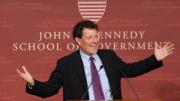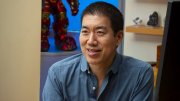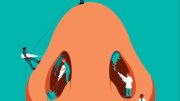Modern Liberty and the Limits of Government, by Charles Fried, Beneficial professor of law (Norton, $24.95). Fried assesses individual liberty in the welfare state, its two most potent rival ideals equality and communityand the government regulations that support and menace it. This accessible book is part of the Issues of Our Time series edited by Fletcher University Professor Henry Louis Gates Jr. In book-jacket endorsements, Cogan University Professor Stephen Greenblatt, who disagrees broadly with Fried, calls the book vexingly invigorating, and former New York Times columnist Anthony Lewis 48, Nf 57, writes, He means to be provocative and is, making us think about profound issues.
Take Me to the River: A Wayward and Perilous Journey to the World Series of Poker, by Peter Alson 77 (Atria Books, $24). Seasoned player Alson goes to Vegas for the Big Game in hopes of winning enough to pay for his wedding, and is pretty funny about it along the way.
Men: Evolutionary and Life History, by Richard G. Bribiescas, Ph.D. 97 (Harvard University Press, $28.95). The author, an assistant professor of anthropology at Yale, came across an Ache man in Paraguay wearing a baseball cap that said, in English, There are three stages to a mans life: Stud, Dud, Thud. That sums it up well, writes Bribiescas, offering insights into why boys will be boys.
American Islam: The Struggle for the Soul of a Religion, by Paul M. Barrett 83, J.D. 87 (Farrar, Straus & Giroux, $25). Islam is now a U.S. faith, with six million adherents in a subculture torn between moderation and extremism, as emerges in this lively group portrait. Barrett, now at Business Week, was formerly a reporter and editor at the Wall Street Journal.
I Feel Earthquakes More Often Than They Happen: Coming to California in the Age of Schwarzenegger, by Amy Wilentz 76 (Simon & Schuster, $26). Wilentz moved to Los Angeles from Manhattan in 2003 and became an expert on tremors real and imagined, as she tells in this account of her explorations of California and where it stands.
 |
| The National Portrait Gallery, Smithsonian Institution: Gift Of Varina Webb Stewart |
First Lady of the Confederacy: Varina Daviss Civil War, by Joan E. Cashin, Ph.D. 85 (Harvard University Press, $29.95). Varina Howell Davis, portrayed at left before her marriage, was the devoted wife of Jefferson D., president of the Confederacy, who was stiff, much older, and demanding. A complex, conflicted woman, pro-slavery but pro-Union, she moved to New York City after Jeffersons death, became a friend of Julia Grant, widow of Ulysses S., and declared in print that the right side had won the war. Cashin is associate professor of history at Ohio State, writes well, and concludes in this first biography of Varina Davis that her tenure as First Lady was for the most part a disaster.
God Has a Dream: A Vision of Hope for Our Time, written and read by Desmond Tutu, LL.D. 79 (Maui Media, a four-CD audiobook, $24.95). Love, laughter, and peace are his goals, as the archbishop offers an antidote to private suffering, the conflict in the Middle East, war in Iraq, and terrorism.





